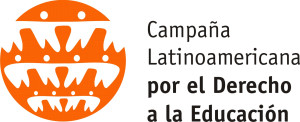Foto: Luis Fernando Arellano
Youth from Latin America and the Caribbean transforming education
August 12, 2019
Por: Thais Iervolino
In the occasion of the International Day of Youth, find out some actions CLADE’s national member forums are engaged with today, urging for the guaranttee of the right to education and participation of youths in their countries
In 1999, United Nations General Assembly appointed August 12 as the International Youth Day, an annual celebration aimed at promoting the role of youth in processes of change, as well as raising awareness on the challenges and contexts faced by young people.
This year, the UN celebrates this date with the slogan “Transforming Education”. This slogan was chosen to “highlights efforts to make education more relevant, equitable and inclusive for all youth, including efforts by youth themselves”.

Data from the UN show there are today 1.8 billion people between 10 and 24 years of age. More than a half of the boys, girls and adolescents between 6 and 14 years do not have access to a quality education.
The International Youth Day and the SDG 4
This year, the International Day Youth Day embraces the Goal #4 of the 2030 Agenda for Sustainable Development (SDG 4), through which UN member States are committed to: “Ensure inclusive and equitable quality education and promote lifelong learning opportunities for all”. Through this, it is intended to encourage the analysis and debates on how governments, youths and youth organizations and collectives, as well as other interested parties, are transforming education into a key element to reach sustainable development.
Young population between 18 and 24 years of age in Latin America and the Caribbean had already passed the 108 million mark in 2015, and there are [still] many challenges to the realization of their rights: education, labor, violence and relevance of the education in regards to youth life trajectories are some of the main points of such debate.
In turn, secondary education has stood out particularly, in an important way, in the last years. Many States from the region have agreed that guarantteing full, participatory citizenship involves the realization of an educational trajectory that is completed at the conclusion of secondary school, what has pushed them to elaborate and approve legal frameworks recognizing this stage of education as obligatory and free. Nevertheless, according to data collected by the Information System on Educational Tendencies in Latin America (SITEAL, by its acronym in Spanish), in 2013, 21% of the young people from 15-17 years old were out of school and only 63.4% of the young people from 21-23 years old had graduated in secondary school.
In face of such a reality, Latin American Campaign for the Right to Education (CLADE) has started a set of initiatives, including dialogue tables and virtual and face-to-face encounters between members of students’ movement and youth from the region, to discuss challenges and advances to the realization of their right to education. These actions were promoted with the purpose of knowing and supporting their views, proposals and demands to improve education systems, strengthening their participation in key spaces for debating and monitoring education policies at the regional and national levels in turn.
Below, we also share some actions being developed by CLADE’s national member forums, urging for the guaranttee of the right to education and youth participation in their countries.
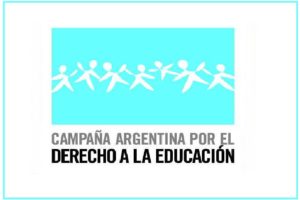 Argentina
Argentina
Argentinian Campaign for the Right to Education (CADE) is dedicated to monitoring the Argentinian Federal Council agreements in regards to changing secondary education, advocacting for the implementation of comprehensive sexuality education and acting to counter school violence in that education stage. Last month, CADE has also protested against voluntary service of adolescents and youths implemented by the country’s military police.
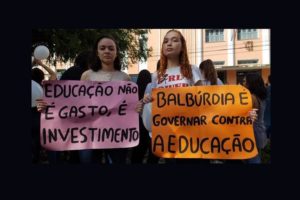
Brazil
National Campaign for the Right to Education (CNDE, for its acronym in Portuguese) was one of the organizations promoting the enactment of the National Education Plan (PNE, for its acronym in Portuguese) 2014-2024, one of the most important victories in guarantteing the right to education in Brazil. The Plan sets about 11 goals related to the rights of adolescents and the youth, such as the goal proposing to universalize education care to all the population between 15 and 17 years old and to raise the enrollment in secondary school up to 85% until 2024. After five years from PNE approval, CNDE is monitoring and urging for its goals to be accomplished.
In that sense, on last June the Campaign denounced at the UN the current setbacks for the rights of girls, boys and adolescents in Brazil
Bolívia
On August 15, the Third National Forum of Rural and Urban Youth from Bolivia was opened. The event, organized by the Center of Research and Promotion of the Rural Workers (CIPCA) focused on the subject: “Building and making agreements on youth agendas to strengthen democracy in Bolivia”, and brought together more than 300 young persons from the nine administrative regions in the country, which, since the encounter, are setting political agendas on different topics.
Bolivian Campaign for the Right to Education (CBDE) supports the topic on education.
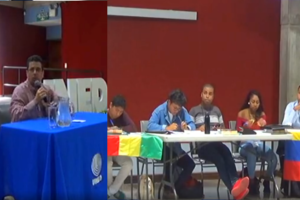
Costa Rica
This month, the Youth Rights and Citizenship Agenda Center at the Distance Learning State University (UNED) from Costa Rica organized the 12th edition of the International Seminar “Democratic Values and Practices for Youth Leadership”.
The event is part of a programme dedicated to researching, teaching, extension and training, focusing on youth population in the country; it searched to examine issues such as the gender perspective and the recognition of historically denied subjectivities in education. In that way, the importance of reaching social and solidary economy as an alternative for a better wealth distribution and the need to strengthen democracy to promote inclusion and human development were dicussed.
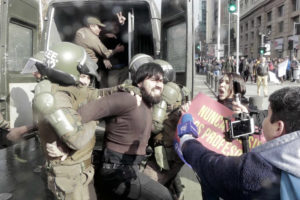
Chile
Social and Educational organizations, including the Forum for the Right to Public Education, got together in the Network Against Students’ Repression, to complaint to international human rights bodies about the punitive practices, the political-institutional violence, the criminalization and the Chilean State persecution of mobilized students and teachers.
During the UN SDG 4 reviewing process, the Forum also stressed the need to guaranttee the right to comprehensive sexuality education to students and young people and to improve the Youth and Adult Education policies.
>> Read +: SDG 4 Review of Chile and Guatemala at the UN
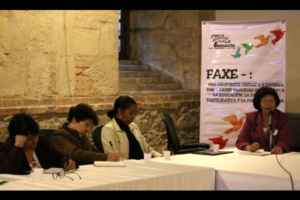
Colombia
Colombian Coalition on the Right to Education (CCDE), by its acronym in Spanish) has participated in students’ and teachers’ organizations led mobilizations in the country, to demand the national government to accomplish its agreements on proper and fair funding for the right to education, making sure there is a dignifying budget for universities and the Youth and Adult Education.
In that sense, [the Coalition] promoted, last May, a seminar to discuss education financing, the right to education on the new national development plan and the current situation of teachers, students, youths, adults and indigenous communities.
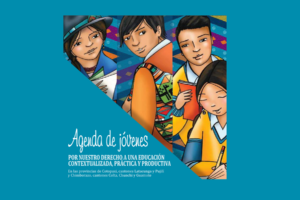 Ecuador
Ecuador
Social Contract for Education (CSE, by its acronym in Spanish) elaborated the publication “Youth Agenda”, presenting expectations from youths and adolescents from Colta, Chunchi, Guamote, Latacunga and Pujilí, in regards to their quality of life and the fulfilment of an education that allows them to continue their training, achieving their life projects.
>> Read+: Youth Agenda
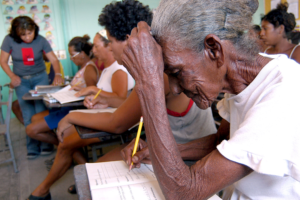
Guatemala
In the occasion of the SDG 4 review at the UN, Education for All Collective presented some of the challenges for Youth and Adult Education at the national level.
The Collective complained about government’s lack of attention to secondary education and demanded greater investments in the country’s youth and adult education. Currently, only 20 in each 100 young persons who complete primary education go to secondary education in Guatemala. In addition, more than 50% of the night school students do not complete secondary school.
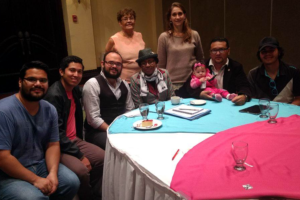
Honduras
The Dakar Honduras Forum has presented complaints and advocated against students’ criminalization and repression in the country. In that sense, it has acted to make sure the students’ and young people’s voices are taken into account in debates on education policies. Examples are: the series of meetings and roundtables promoted by the Forum, with education and students’ communities, for the implementation of 2030 Agenda in the country and in permanent support of their struggle for the right to education and participation.
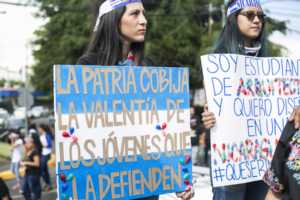
Nicaragua
The Initiative for Nicaragua Education and Human Development Foro (FEDH-IPN, by its acronym in Spanish) has joined students from different universities in the country, as well as youth organizations and collectives, to elaborate the research “Youth Participation and Social Transformation Processes: Implications, Impact, Challenges and Commitments”.
The research, still in progress, proposes to systematize organized youth participation in face of social-political contexts of social transformation and their participation to build new education models. In that sense, the Forum has acted to present perspectives and demands of students and youths from the country to the State of Nicaragua, at the UN Universal Periodic Review (UPR).
México
The Campaign for the Right to Education in Mexico (CADEM, by its acronym in Spanish) has, among its members, students’ and youth collectives from the National Network of Disruptive High Schools and youth collectives.
CADEM’s actions, in partnership with the Network of Disruptive High Schools, is centered at the recognition of community and intercultural education.





